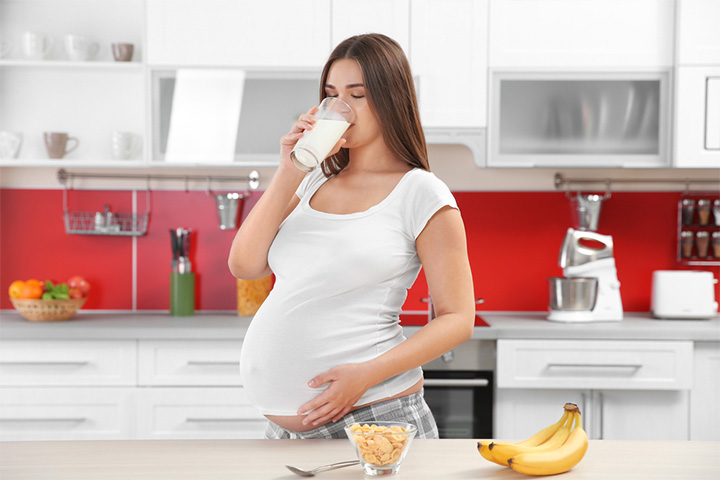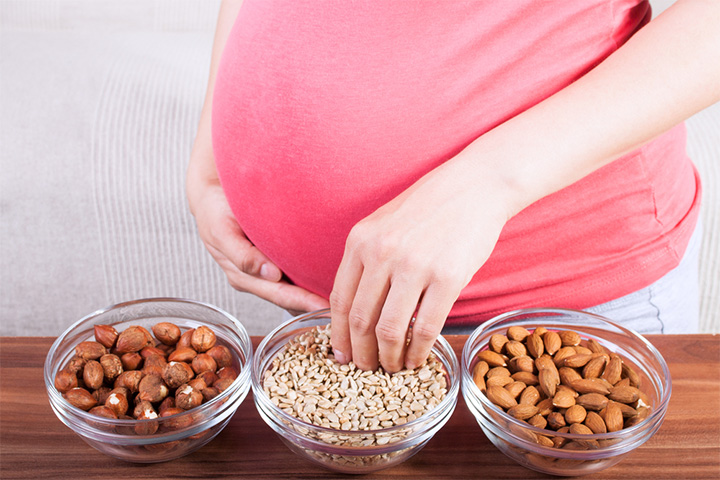
Image: Shutterstock
Every parent waits patiently to see their child so they can give the age-old statement, ‘He/she looks just like their mom/dad.’ Well, it’s true that children mostly inherit their looks from their parents (and sometimes grandparents), but the child’s health and appearance are not just affected by genetics but also by the mother’s experiences while she is pregnant (1). Numerous elements can impact the development and growth of babies. From the food that the mother eats to the settings in which she lives; they all affect how your child will be. Here are some salient features that have a significant role in shaping the physical body of your little one. Read on to know them all.
1. Season In Which A Baby Is Born
Image: Shutterstock
According to one study, babies born in the summer months have greater average birth weights and higher average heights than those born in the winter months (2). On the other hand, winter-borns exhibit all of the polar opposite traits. Vitamin D is critical for the development of a fetus and can only be obtained from sunshine exposure, which is most common in the summers (3). In addition, calcium and phosphorus absorption is enhanced by vitamin D, which also adds to a child’s weight and height gain(4).
2. Sugar Levels In Mother’s Blood
While cravings for sweets during pregnancy are natural, you may want to limit your intake if you don’t want your excess sugar to adversely affect your baby. Pregnant women with diabetes (GDM), or elevated blood sugar levels, may harm their unborn child (5). In addition, babies that consume too much sugar are at greater risk of developing obesity, diabetes, and jaundice (5). GDM can be controlled with a healthy diet and regular exercise, or it can be treated with insulin or other drugs.
3. Consumption Of Milk Per Day
Image: Shutterstock
Drinking milk is believed to make a baby’s skin tone lighter. The association of milk consumption and healthy birth weight has not been proven scientifically; however, newer research has found a possible correlation (6). Women who drank one cup of milk or less per day had lighterkids than those who drank more, according to one medical publication (7). Each additional cup added 41 grams (or 0.09 pounds) to the total weight.
4. Consumption Of Caffeine
According to the American Clinical practice Guidelines, pregnant women should limit their coffee intake to fewer than 200 milligrams per day (8). Too much caffeine can generate a significant buildup in the placenta since it is readily absorbed and passed on (9). This might limit the fetus’s growth and result in an underweight newborn.
5. Eating Nuts
Image: Shutterstock
If the mother isn’t allergic to nuts, research shows that consuming peanuts throughout her childbearing months may reduce her child’s chance of developing a peanut allergy (10). Hives, redness, and swelling can all be signs of an allergic response. A runny nose, difficulty in breathing, and indigestion may also be present but are not apparent. Early introduction to this food may help keep a newborn from developing these symptoms.
6. Air Pollution Is A Major Issue
Birth weight can be affected by a baby’s exposure to polluted or unclean air. Researchers have shown that the average birth weight reduces by 8.9 grams (or approximately a third of an ounce) for each and every 10 micrograms of environmental threat (per cubic meter of air) (11). In addition, the impact of air pollution on pregnant women can be reduced by consuming foods high in powerful antioxidants.
7. Clamping The Umbilical Cord Later Than Necessary
The time duration at which the umbilical cord is clamped could affect the newborn’s complexion. A mother reported that when the cord was cut immediately when her son was delivered, the baby seemed blue at first. It took her son around 11 minutes to get the color. However, during the delivery of her second child, she preferred to keep the cord intact for some time, giving her daughter a pink skin tone from the beginning. According to research, delaying the cutting of the cord by five minutes aids in the transfer of iron to the newborn and may have sound effects on the construction of the nervous system (12).
However, if a hemorrhage occurs or the baby needs immediate medical assistance, the umbilical cord must be clamped as soon as possible (13).
8. Foods High In Protein Promote Hair Growth
Image: Shutterstock
Around the 14th or 15th week of pregnancy, a baby’s hair begins to develop (14). There are several benefits to eating protein for hair development (for both you and your baby), as you transmit the nutrients to your child. Because of the biotin in egg yolks (which is beneficial to hair growth), they are an excellent protein source. Spinach, avocados, and almonds, which are high in folic, iron, and vitamins A and C, are also suitable for our hair and scalp health since they keep it hydrated and healthy.
Pregnancy is not just a memorable phase where the mother’s body goes through changes. The nine months have a lot to do with how your baby’s health turns out to be. Taking care of your diet and ensuring you get ample baby-safe exercise is essential. Which among these points was an absolute eye-opener for you? Let us know in the comments section. Happy pregnancy!
















